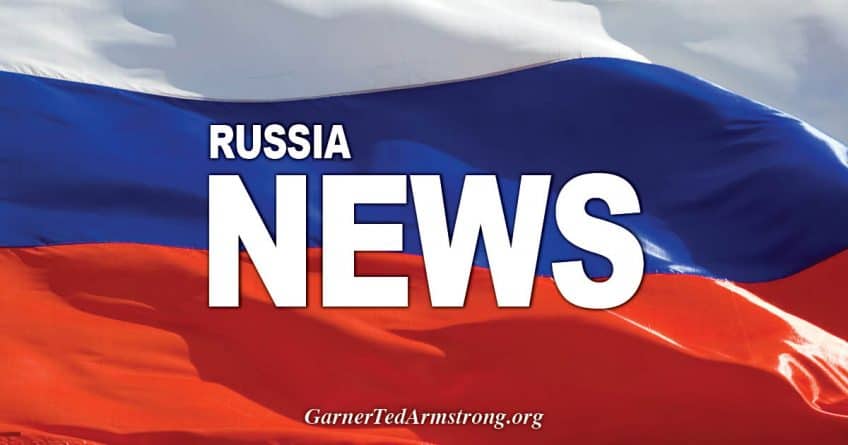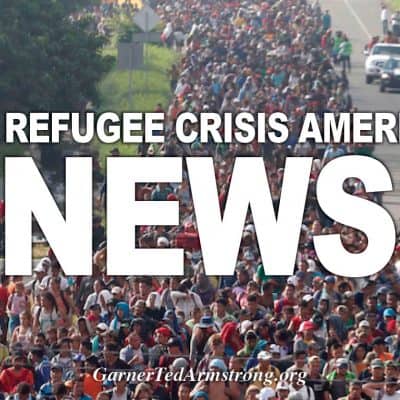
Russian Prime Minister Mikhail Mishustin, left, listens to Belarusian President Alexander Lukashenko during talks in Minsk on Thursday. (Alexander Astafyev, Sputnik, Kremlin Pool Photo via AP)
(CN) — The harsh view that the European Union is a weakling when it comes to foreign affairs and standing up against the military powers of the world is being seriously tested as Russia exerts control over Belarus and dismisses claims that a prominent Russian opposition leader was poisoned with a military-grade nerve agent.
On Thursday, Russia was seen flexing its muscles on both fronts. It sent Russian Prime Minister Mikhail Mishustin and a cadre of other government ministers to Minsk, the Belarusian capital, in a show of support for the teetering regime of Belarusian President Alexander Lukashenko.
The Kremlin also dismissed Germany’s findings that Russian opposition figure Alexei Navalny was poisoned with Novichok, a nerve agent first concocted by Soviet scientists in the 1970s and believed to be in the possession of the Russian military in violation of chemical weapons treaties.
The EU now risks seeing Russia get its way despite the chorus of protests coming from European capitals against the authoritarian tactics deployed by Lukashenko and Russian President Vladimir Putin.
“In foreign policy, the European Union is frankly hopelessly weak, slow and divided,” Mark Galeotti, a Russia expert who writes about Russian criminals and spies, said on his podcast.
Galeotti said the EU likes to see itself as a hub of economic power and a model of supranational liberal-democratic governance transcending the old order of zero-sum politics and a leader in establishing international laws, rules and standards.
But he said Russia discounts the EU “as a scam” built around unnatural supranational institutions without real power and sees the bloc as being on the brink of collapse due to internal differences and rivalries, the rise of nationalist movements along with anti-EU sentiment and the departure of Great Britain after the Brexit referendum.
“This is not power as they see it,” Galeotti said. “They feel pretty good about their million-man army compared to the EU” and its insistence on rules and laws.
“It sees none of the genuine signs of power in the EU,” he added. “The Kremlin sees power as based around will, discipline, economic and military and political strength that can be applied; speed and action. In those terms, the EU is nowhere, punching so far below its weight.”
Although Russia views the EU as a geopolitical weakling, it still poses a risk for Putin because the European model is alluring to so many people in Russia and neighboring Belarus, he said.

Belarusian opposition supporters light their smartphones as they gather at Independence Square in Minsk on Aug. 25, 2020. (AP Photo/Sergei Grits)
“There is a certain genteel, magnetic … force to the European Union that at some level the Kremlin understands and fears,” Galeotti said.
It’s in this context, then, that the uprising in Belarus and the alleged poisoning of Navalny can be seen as crucial events in the long-running conflict between the EU and Putin’s Russia.
This new chapter in the clash unexpectedly opened on Aug. 9, when mass pro-democracy demonstrations broke out in Belarus following accusations of a rigged presidential election. The protesters are pleading for the EU’s help in bringing down the 26-year rule of Lukashenko, a man often described as Europe’s last dictator.
The EU has imposed sanctions on Lukashenko and pledged to send $63 million to back pro-democracy efforts and support victims of the regime’s brutal crackdown on protests. European leaders also are calling for investigations into allegations of torture against protesters and for a new presidential election.
The crisis on the EU’s eastern doorstep deepened and became more multifaceted with the alleged poisoning on Aug. 20 of Navalny, a main opposition figure in Russia who enjoys the backing of the West. He fell ill during a flight to Moscow from Tomsk in Siberia; he was flown to Berlin after receiving treatment from Russian doctors who said he hadn’t been poisoned.
He remains in a medically induced coma in a Berlin hospital. His condition is not considered life threatening, though he may suffer long-term nerve damage, doctors say.
On Wednesday, German Chancellor Angela Merkel lashed out against Russia at a news conference where she announced that laboratory tests by the German military found “beyond a doubt” that Navalny had been poisoned with Novichok in an effort “to silence him.”
This isn’t the first time Putin’s regime has been accused of using Novichok. In 2018, a former Russian double agent, Sergei Skripal, and his daughter allegedly were poisoned with the nerve agent in England.
Merkel called Navalny’s poisoning “attempted murder” and she demanded Moscow explain its position on the Navalny case. She also called for an international investigation into the alleged poisoning.
But it remains far from clear who was behind Navalny’s poisoning. Some experts see the hand of the Kremlin behind it because Navalny poses a threat to Putin with regional elections set for Sept. 13 and the mass protests in Belarus threatening to spark a similar wave of protests in Russia.
But many pundits, even among those in the West, remain unconvinced that the poisoning was ordered by the Kremlin and instead believe it may have been carried out by Navalny’s other enemies. In the past, Navalny has said he would be a bigger problem for the Kremlin as a corpse than a living person. Experts are questioning the Kremlin’s involvement because the attack did not kill him and they don’t think Moscow would have granted his transfer to Berlin if it knew Novichok was used.
“The list of people he’s annoyed is as long as the list of rich powerful Russians,” Galeotti said in a recent interview about Navaly. He doesn’t believe the Kremlin ordered the assassination attempt. But he said only someone who is very rich and powerful in Russia could have obtained Novichok.
British authorities claim Russia has a small stockpile of the nerve agent in violation of the Chemical Weapons Convention. Russia denies it has any Novichok. The Organization for the Prohibition of Chemical Weapons may get involved in a probe. The agency confirmed in 2018 that Novichok had been used against the Skripals.
Navalny has risen to prominence as an anti-corruption investigator and blogger who criticizes Putin and his party, United Russia. Navalny accuses Putin and his political cronies of being “crooks and thieves.” He has revealed stunning corruption at the top levels of Russian society.
The 44-year-old political activist charges that he was poisoned while in prison last year. He previously was attacked in public too. Since entering politics, he has been arrested many times and was convicted of embezzlement in what he called a politically motivated prosecution. He was blocked from running against Putin in the 2018 presidential elections and he’s been barred from registering a political party.

Russian opposition activist Alexei Navalny speaks to a crowd in Moscow last year. (AP Photo/Pavel Golovkin, File)
Politically, Navalny is hard to pin down but he has a history of courting far-right circles and expressing racist anti-Muslim ideas while supporting ethnic Russian nationalism. He advocates transparency in government and he has gained support beyond Moscow in Russia’s regions, where resentment against Moscow’s taxes and its rich elite has grown in recent years due to falling living standards, a lack of progress in fixing decrepit infrastructure and rampant corruption.
The question, though, remains what Germany and the EU will do to back up their anger against Russia. New sanctions are being considered, but the EU has already imposed sanctions on Russia over its annexation of Crimea in 2014. The EU is also turning to NATO and the U.S. for help.
By Thursday, calls were mounting for Germany to stop construction of a controversial gas pipeline from Russia, the Nord Stream 2. The pipeline is expected to double the amount of gas Germany already gets from Russia. Despite the finding that Navalny was poisoned with Novichok, Merkel dismissed the possibility of ending Nord Stream 2, a position that drew rebukes.
“We must pursue hard politics, we must respond with the only language Putin understands – that is gas sales,” said Norbert Roettgen, a top German politician with Merkel’s conservative party, the Christian Democratic Union, on German radio.
He said finishing the pipeline “would be the maximum confirmation and encouragement for Putin to continue this kind of politics.”
But it remains doubtful that Merkel will follow this course.
“Outrage could be part of a broader strategy if the goal is to prepare your electorate for unpopular action, like a war,” Wolfgang Munchau, a political analyst who runs Eurointelligence, said in a briefing note. “But when that part is missing, outrage turns into hypocrisy.”
Munchau said Putin took the risk of sanctions when he ordered the annexation of Crimea because he wanted to “fortify Russia’s wider zone of influence.”
“Such trade-offs are absent in German thinking,” Munchau said. “German foreign policy works on two separate levels: the level of the moral outrage over human rights violations … and the simultaneous pursuit of German trade interests.”
Munchau said Germany’s business interests outweigh its foreign policy strategy.
“Modern Germany has no tradition of defining strategic interests that go beyond exports,” he said, adding that Roettgen’s position on Nord Stream 2 “does not carry majority support in the Bundestag.”
He said Germany’s influence over foreign policy in the EU has grown since Britain left the bloc, but he said Germany must show it is willing to make hard decisions.
“If you are not ready to take a hit in the pursuit of a strategic interest, you are not a foreign policy actor,” he said.
In Belarus, meanwhile, Russia is getting its way too by backing Lukashenko’s crackdown on the opposition. In recent days, most of the leaders of a council set up to serve as the voice of the opposition have been arrested. Also, police are now arresting many protesters, journalists and critics, including famous television hosts. Opposition leaders charge that many people have disappeared too. At the same time, cracks are beginning to appear in the opposition with the announcement that a new party will be formed by an opposition leader.
Russia has said it will not meet with the opposition and it has pledged to send in military help to Lukashenko if the situation gets out of control.
Belarus and Russia have close ties and Moscow’s backing of Lukashenko likely will force Belarus to become even more closely tied into Russia. Already, more than half of Belarus’s imports come from Russia and about a third of its exports go to Russia.
Courthouse News reporter Cain Burdeau is based in the European Union.
Source: https://www.courthousenews.com/eu-and-russia-clash-over-belarus-poisoning-accusations/
[Disclaimer]








